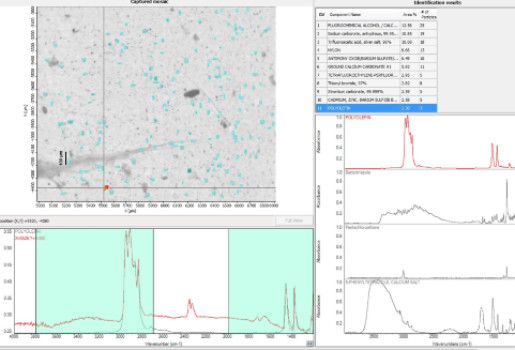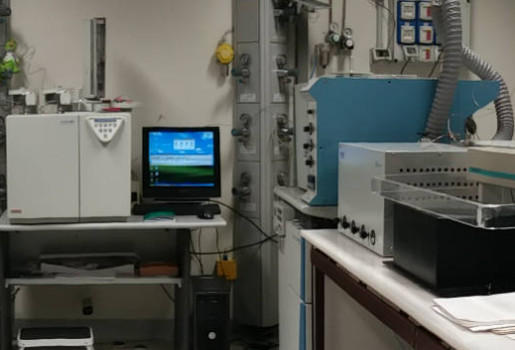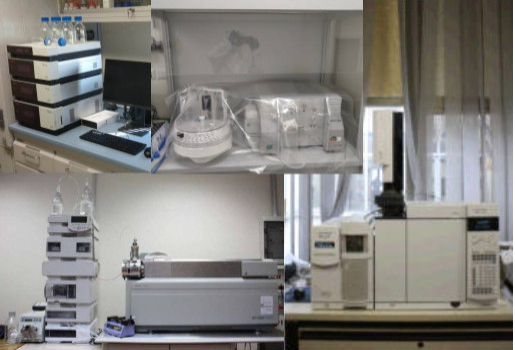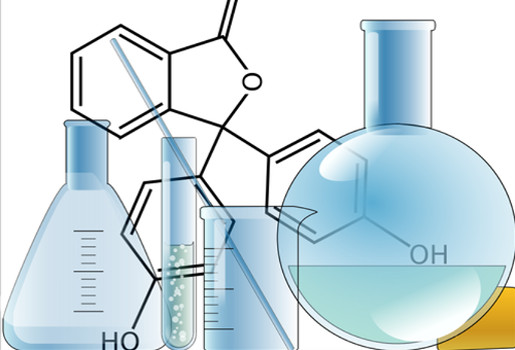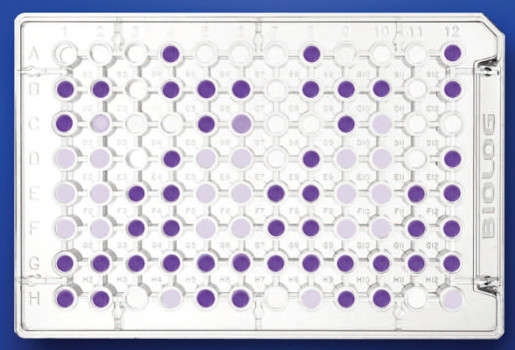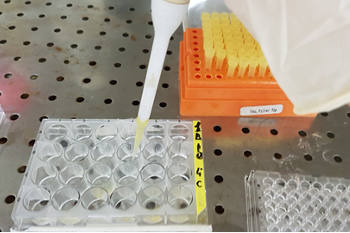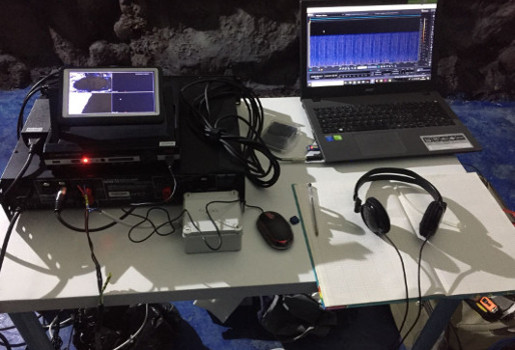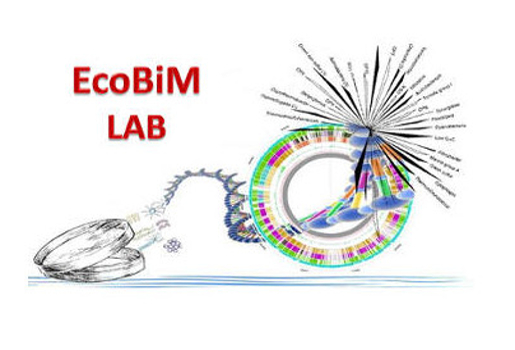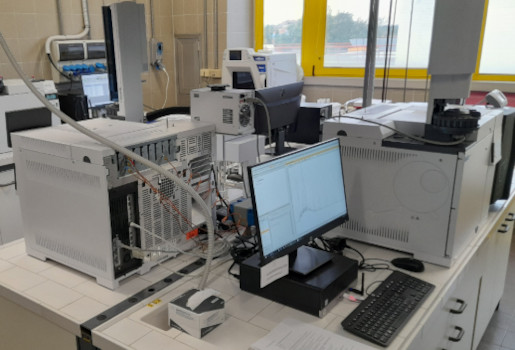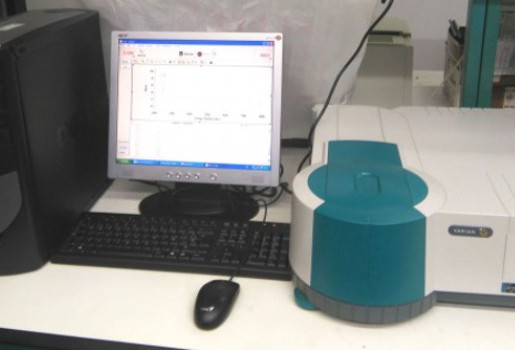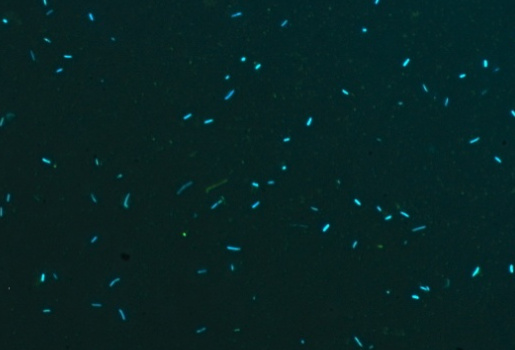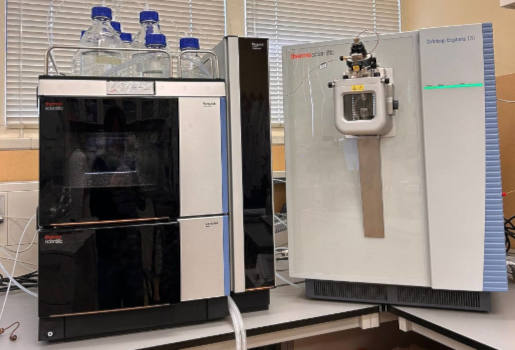
 Master's degree in Exploration Geology (University of Rome "La Sapienza"), PhD in Science and Management of Climate Change (Cà Foscari University of Venice, OGS Trieste and University of Otago, New Zealand) funded by the Italian National Research Program in Antarctica (PNRA). Current position: research fellow at the Institute of Polar Sciences of the CNR (CNR-ISP) in Bologna. Previously assistant researcher at the geochemistry laboratory of the University of Otago in New Zealand.
Master's degree in Exploration Geology (University of Rome "La Sapienza"), PhD in Science and Management of Climate Change (Cà Foscari University of Venice, OGS Trieste and University of Otago, New Zealand) funded by the Italian National Research Program in Antarctica (PNRA). Current position: research fellow at the Institute of Polar Sciences of the CNR (CNR-ISP) in Bologna. Previously assistant researcher at the geochemistry laboratory of the University of Otago in New Zealand.
Currently the research concerns the study and characterization of the terrestrial organic carbon along the Adriatic margin through stable carbon isotopes and organic markers as part of the PRIN-PASS 2017 Project.
 Graduated in Communication Strategies at the University of Padua, during her studies she could experimented different formats of scientific communication, being part of the Planet Book photobook project (Contrasto editor) and participating several times at the public presentations of the book. She wrote as a volunteer for the CICAP online magazine, Query, deepening the theme of the relations between science, pseudoscience and society.
Graduated in Communication Strategies at the University of Padua, during her studies she could experimented different formats of scientific communication, being part of the Planet Book photobook project (Contrasto editor) and participating several times at the public presentations of the book. She wrote as a volunteer for the CICAP online magazine, Query, deepening the theme of the relations between science, pseudoscience and society.
She graduated at the Master’s in Science Communication “Franco Prattico” at SISSA (Scuola Internazionale di Studi Superiori Avanzati) in Trieste. During the Master experience, she had the opportunity to test her skills trying different medium and formats for scientific communication and to learn the theorical basis. During her traineeship, she carried out support activities for the institutional communication of the Institute of Polar Sciences of CNR, managing and creating the contents and the strategy for the social media channels.
Currently, she is handling the presence of the Beyond EPICA – Oldest Ice Core project on social media and she is also involved on outreach and disseminations activities related to the project. She is also taking care of the development of Beyond EPICA communications strategy with partners and the relations with them.
 Bachelor Degree in Environmental and Natural Sciences (University of Udine) and Master's Degree in Marine Biology (University of Bologna). Current position: research grant at the Institute of Polar Sciences (CNR-ISP) in Bologna. I'm studying microplastics and POP pollution in the continuum snow-ocean of the Arctic domain in the European Project Horizon-CL6-2023 INNOVATIVE COMMUNITY ENGAGEMENT FOR BUILDING EFFECTIVE RESILIENCE AND ARCTIC OCEAN POLLUTION-CONTROL GOVERNANCE IN THE CONTEXT OF CLIMATE CHANGE (ICEBERG).
Bachelor Degree in Environmental and Natural Sciences (University of Udine) and Master's Degree in Marine Biology (University of Bologna). Current position: research grant at the Institute of Polar Sciences (CNR-ISP) in Bologna. I'm studying microplastics and POP pollution in the continuum snow-ocean of the Arctic domain in the European Project Horizon-CL6-2023 INNOVATIVE COMMUNITY ENGAGEMENT FOR BUILDING EFFECTIVE RESILIENCE AND ARCTIC OCEAN POLLUTION-CONTROL GOVERNANCE IN THE CONTEXT OF CLIMATE CHANGE (ICEBERG).
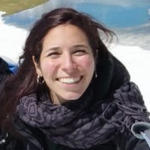 She obtained her Master's degree in Ecobiology (environmental and evolutionary biology) at the University of Rome La Sapienza. She gained experience both in Italy and abroad, taking part in various research projects across different scientific fields, with a particular focus on biodiversity studies—through genetic and morphological analyses—and on environmental research using remote monitoring systems. These experiences allowed her to explore a wide range of topics and acquire multidisciplinary skills. She worked as a research fellow within the “NADC – National Antarctic Data Center” project, funded by the PNRA (National Antarctic Research Program) and carried out at the Institute of Polar Sciences of the National Research Council (ISP-CNR) in Rome. In this role, she was responsible for managing the IT infrastructure for the cataloguing and sharing of data and metadata related to scientific projects, mainly in the fields of climatology, radiation, and marine biology conducted in Antarctica. She is currently a technologist at the ISP-CNR, where she contributes to the POLARIN project, manages the databases and metadata of scientific projects carried out in the Arctic and Antarctic
She obtained her Master's degree in Ecobiology (environmental and evolutionary biology) at the University of Rome La Sapienza. She gained experience both in Italy and abroad, taking part in various research projects across different scientific fields, with a particular focus on biodiversity studies—through genetic and morphological analyses—and on environmental research using remote monitoring systems. These experiences allowed her to explore a wide range of topics and acquire multidisciplinary skills. She worked as a research fellow within the “NADC – National Antarctic Data Center” project, funded by the PNRA (National Antarctic Research Program) and carried out at the Institute of Polar Sciences of the National Research Council (ISP-CNR) in Rome. In this role, she was responsible for managing the IT infrastructure for the cataloguing and sharing of data and metadata related to scientific projects, mainly in the fields of climatology, radiation, and marine biology conducted in Antarctica. She is currently a technologist at the ISP-CNR, where she contributes to the POLARIN project, manages the databases and metadata of scientific projects carried out in the Arctic and Antarctic
 Master’s degree in Environmental Sciences with a specialization in Global Change & Sustainability at Ca' Foscari University of Venezia. The thesis focused on studying the distribution of anionic bromine and iodine compounds in polar snow samples from the Svalbard islands, examining their seasonal variability and the impacts of climate change. Participation in a scientific publication titled Inorganic iodine and bromine speciation in Arctic snow at picogram-per-gram levels by IC-ICP-MS, published in the Journal of Analytical Science and Technology. Currently, she is a research fellow at the CNR-ISP, where she is conducting research on mercury and other micro-contaminants and chemical markers in air and atmospheric aerosol at the high mountain site Col Margherita, within the scope of the research project DECIPHER - Disentangling mechanisms controlling atmospheric transport and mixing processes over mountain areas at different space-and timescales.
Master’s degree in Environmental Sciences with a specialization in Global Change & Sustainability at Ca' Foscari University of Venezia. The thesis focused on studying the distribution of anionic bromine and iodine compounds in polar snow samples from the Svalbard islands, examining their seasonal variability and the impacts of climate change. Participation in a scientific publication titled Inorganic iodine and bromine speciation in Arctic snow at picogram-per-gram levels by IC-ICP-MS, published in the Journal of Analytical Science and Technology. Currently, she is a research fellow at the CNR-ISP, where she is conducting research on mercury and other micro-contaminants and chemical markers in air and atmospheric aerosol at the high mountain site Col Margherita, within the scope of the research project DECIPHER - Disentangling mechanisms controlling atmospheric transport and mixing processes over mountain areas at different space-and timescales.
 PhD in Environmental Sciences from the Ca’ Foscari University of Venice, with a thesis on the assessment of Small Microplastics (<100 µm) fluxes and other pollutants from the atmospheric compartment to highways stormwaters run-off. Research fellow (2019-2020) at Ca’ Foscari University with a research project in the development and analysis of microplastics (<100 µm) and plastic additives via MicroFTIR and PyrGC/MS in different environmental matrices, such as water, sediment, biota, snow, aerosol and ice cores also from Svalbard Islands. Winner of an Arctic Field Grant 2020 on the quantification and identification of small microplastics, additives, and plasticizers in snow and aerosol from Ny-Ålesund, Svalbard Island.
PhD in Environmental Sciences from the Ca’ Foscari University of Venice, with a thesis on the assessment of Small Microplastics (<100 µm) fluxes and other pollutants from the atmospheric compartment to highways stormwaters run-off. Research fellow (2019-2020) at Ca’ Foscari University with a research project in the development and analysis of microplastics (<100 µm) and plastic additives via MicroFTIR and PyrGC/MS in different environmental matrices, such as water, sediment, biota, snow, aerosol and ice cores also from Svalbard Islands. Winner of an Arctic Field Grant 2020 on the quantification and identification of small microplastics, additives, and plasticizers in snow and aerosol from Ny-Ålesund, Svalbard Island.
Current position: Research Fellow at CNR-ISP on the microplastics and plastic additives analysis and environmental impact assessment in different polar matrices.
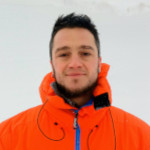 Biochemist graduated from the National University of Mar del Plata (Argentina), PhD in Biology from the National University of Comahue (Argentina), with a specialization in the field of water quality. Wintering scientist at the Carlini Antarctic Base, Argentina (25 de Mayo Island, Antarctica, 2023-2024). Professor of general chemistry and biological chemistry for Environmental Engineering at the University of Rio Negro (Argentina, 2017-2022).
Biochemist graduated from the National University of Mar del Plata (Argentina), PhD in Biology from the National University of Comahue (Argentina), with a specialization in the field of water quality. Wintering scientist at the Carlini Antarctic Base, Argentina (25 de Mayo Island, Antarctica, 2023-2024). Professor of general chemistry and biological chemistry for Environmental Engineering at the University of Rio Negro (Argentina, 2017-2022).
Current position: Research Fellow at the Bologna branch of the Institute of Polar Sciences and at the CNR Arctic Base Dirigibile Italia (Ny-Ålesund, Svalbard Islands), for the topic Monitoring of atmospheric, glaciological and marine parameters in the Arctic.
 He obtained in 2016 his Master’s degree in Applied Earth Sciences at the University of Turin. In 2021, he obtained his PhD at the University of Hamburg (Germany) in the Department of Earth Sciences. For his doctoral project, he investigated the paleoclimate and paleoenvironmental conditions in the Mediterranean area about 6 million years ago, when the Mediterranean Basin became almost completely isolated from the global ocean. To carry out his research, he mostly uses fossil molecules preserved in marine sedimentary rocks that can be assigned to a biological source in the environment, i.e. lipid biomarkers.
He obtained in 2016 his Master’s degree in Applied Earth Sciences at the University of Turin. In 2021, he obtained his PhD at the University of Hamburg (Germany) in the Department of Earth Sciences. For his doctoral project, he investigated the paleoclimate and paleoenvironmental conditions in the Mediterranean area about 6 million years ago, when the Mediterranean Basin became almost completely isolated from the global ocean. To carry out his research, he mostly uses fossil molecules preserved in marine sedimentary rocks that can be assigned to a biological source in the environment, i.e. lipid biomarkers.
Currently, he is a research fellow at the Institute of Polar Sciences of the CNR carrying out his research at the Aldo Pontremoli join-lab of Lecce and in Bologna. His research deals with the use of lipid biomarkers to reconstruct the effects of permafrost thawing on the Arctic Ocean.
 Senior Research Fellow within the European H2020 project Beyond EPICA Oldest Ice Core: 1.5 Myr of greenhouse gas -climate feedbacks.
Senior Research Fellow within the European H2020 project Beyond EPICA Oldest Ice Core: 1.5 Myr of greenhouse gas -climate feedbacks.
MSc in Geophysical Sciences (University of Catania) and PhD in Science and Management of Climate Change (Ca' Foscari-Venice).
His research line focuses mainly on two topics: i) the reconstruction of past climatic and environmental conditions based on ice core records and ii) the study of the chemical and physical properties of the seasonal snowpack in the Arctic environment.
He is currently involved in the analysis of glacial archives from polar and alpine regions (i.e. ice cores, snow, and firn), using mass spectrometry techniques for trace elements determination. He is particularly interested in the study of halogens (bromine and iodine) in glacial records, and their link with seasonal sea ice fluctuations, as well as the study of biogeochemical cycles of heavy metals, organic compounds, black carbon, mercury, and microplastics in the Arctic cryosphere. Since 2018, he has been part of the Italian team of Ice Memory, an international research project aimed at preserving the climate signal recorded in mountain glaciers around the world. Since 2019, he has been responsible for the long-term chemo-physical snow monitoring program in Ny-Ålesund (Svalbard). During the 2023-24 and 2024-25 drilling seasons, he participated in the international research project Beyond Epica Oldest Ice at Little Dome C (LDC) in the Antarctic plateau, where he contributed to the processing of the extracted ice core. In his career, he has participated in numerous scientific expeditions to polar regions, including the Arctic (Svalbard, Alaska), Antarctica (LDC), as well as high altitude alpine areas (>4200m), and subterranean glacial environments. He has contributed, as first author or co-author, to more than 20 scientific articles published in international peer-reviewed journals.
![]() https://orcid.org/0000-0003-2498-3227 Google Scholar
https://orcid.org/0000-0003-2498-3227 Google Scholar
 BSc Degree in Geology at the University of Pisa in April 2016, with a thesis on the acquisition of new dendrochronological curves for the implementation of the existing dataset of Larix decidua Miller in Alta Val di Sole. In October 2017 she pursued a MSc Degree in Geological Sciences and Technologies at the University of Pisa, with a dissertation on new surface exposure ages (3He) of deposits and surfaces of glacial erosion in Northern Victoria Land for the reconstruction of Pleistocene variations of the East-Antarctica sheet. Postgraduate trainee at the Scottish Universities Environmental Research Center (SUERC) in Glasgow (UK) from January to April 2018, and UniPi fellow (August-September 2018). PhD (2018-2022) in Science and Management of Climate Change (Ca' Foscari University of Venice) with a project focused on the development of a new Continuous Flow Analysis system (CFA) for the determination of biomass burning tracers, trace elements and insoluble dust particles in Alpine ice cores, with palaeoclimatological reconstructions of the Grand Combin (Switzerland) and Weißseespitze (Austria) glaciers. Currently research fellow at the CNR Institute of Polar Sciences (CNR-ISP) in Venice Mestre, for the FISR-Ice Memory-An International Salvage Program project. Her project focuses on the implementation of hardware/software systems for the development of innovative analytical techniques for the analysis of ice cores through CFA systems.
BSc Degree in Geology at the University of Pisa in April 2016, with a thesis on the acquisition of new dendrochronological curves for the implementation of the existing dataset of Larix decidua Miller in Alta Val di Sole. In October 2017 she pursued a MSc Degree in Geological Sciences and Technologies at the University of Pisa, with a dissertation on new surface exposure ages (3He) of deposits and surfaces of glacial erosion in Northern Victoria Land for the reconstruction of Pleistocene variations of the East-Antarctica sheet. Postgraduate trainee at the Scottish Universities Environmental Research Center (SUERC) in Glasgow (UK) from January to April 2018, and UniPi fellow (August-September 2018). PhD (2018-2022) in Science and Management of Climate Change (Ca' Foscari University of Venice) with a project focused on the development of a new Continuous Flow Analysis system (CFA) for the determination of biomass burning tracers, trace elements and insoluble dust particles in Alpine ice cores, with palaeoclimatological reconstructions of the Grand Combin (Switzerland) and Weißseespitze (Austria) glaciers. Currently research fellow at the CNR Institute of Polar Sciences (CNR-ISP) in Venice Mestre, for the FISR-Ice Memory-An International Salvage Program project. Her project focuses on the implementation of hardware/software systems for the development of innovative analytical techniques for the analysis of ice cores through CFA systems.
More...
 Master’s degree in Natural Sciences (University of Milano), PhD Candidate in Environmental, Geological and Polar Sciences and Technologies (University of Siena) co-financed by the Italian National Antarctic Museum (MNA). Current position: research fellow at the Institute of Polar Sciences of the CNR (CNR-ISP) in Milano.
Master’s degree in Natural Sciences (University of Milano), PhD Candidate in Environmental, Geological and Polar Sciences and Technologies (University of Siena) co-financed by the Italian National Antarctic Museum (MNA). Current position: research fellow at the Institute of Polar Sciences of the CNR (CNR-ISP) in Milano.
Currently the research concerns the use of satellite images for the estimation of optical and thermal properties of glaciers at the margins of the Antarctic Ice Sheet as a part of the PNRA18 Project Bio-Geo Albedo feedback at Antarctic Ice-Sheet margins. Previously the research concerned the analysis by remote sensing of ablation areas in Antarctica, i.e., wind crust and blue ice, with particular attention to the snow megadune fields on the Antarctic plateau. He attended two PhD courses at The University Centre in Svalbard (NO), with which took part in a campaign in Nordaustlandet Island. As a visiting PhD student, he spent a period at the Finnish Meteorological Institute of Helsinki (FIN) and taught as a tutor for master’s and bachelor laboratories of Cartography and Geographic Information System at the University of Milan. Author of seven scientific publications in international journals.
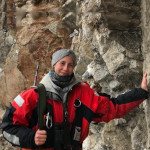 Bachelor in Biology at the Neuchâtel University, Switzerland, and Master of Science in Ecology and Conservation at the University of Groningen, Netherlands. Currently working for the CNR – Institute of Polar Sciences (CNR – ISP) in Venezia Mestre. She is Station Leader of the Italian Arctic station Dirigibile Italia in Ny-Ålesund, Svalbard. As Station Leader, she works daily on the field and in the lab, besides taking care of some parts of the station’s administration.
Bachelor in Biology at the Neuchâtel University, Switzerland, and Master of Science in Ecology and Conservation at the University of Groningen, Netherlands. Currently working for the CNR – Institute of Polar Sciences (CNR – ISP) in Venezia Mestre. She is Station Leader of the Italian Arctic station Dirigibile Italia in Ny-Ålesund, Svalbard. As Station Leader, she works daily on the field and in the lab, besides taking care of some parts of the station’s administration.
 Ministero dell'Universita e Ricerca
Ministero dell'Universita e Ricerca
Programma Ricerche Artico
Programma Nazionale di Ricerca in Antartide
 Ministero degli Affari Esteri e della Cooperazione Internazionale
Ministero degli Affari Esteri e della Cooperazione Internazionale
L'Italia e l’Artico
L’Italia e l’Antartide
CNR-ISP
National Research Council
Institute of Polar Sciences
c/o Scientific Campus - Ca' Foscari University Venice - Via Torino, 155 - 30172 VENEZIA MESTRE (VE)
Phone: +39 041 2348547 - E-mail: protocollo.isp AT pec.cnr.it
Fax: +39 041 2348 549 - Codice Fiscale: 80054330586 - P.I.:02118311006
Unless otherwise indicated, the content of this site is licensed : Attribution Non Commercial Share Alike 4.0 International (CC BY-NC-SA 4.0)
Privacy policy e Cookie policy - Transparent administration (CNR)







